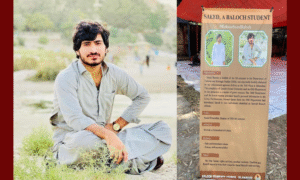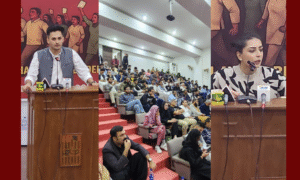The concept of the nation-state, with an independent sovereign identity, emerged with the Peace of Westphalia in 1648. For the first time in human history, the conditions of statehood were emphasized in the Montevideo Convention of 1933. A state was defined as a legal entity, characterized by a sizable population within a defined area, governed by an efficient administration, and possessing sovereign authority. With the evolution of this concept, numerous nation-states came into existence, further complicating the world order. The prevalence of disputes among nation-states challenged the idea of international cooperation.
An International Organization is a legitimate entity that collaborates with the nations of the world to address and resolve issues of mutual concern and inter-state disputes. The primary objective of these organizations is to promote peace and stability globally. They also aim to reduce poverty, safeguard human rights, and support sustainable economic development.
Despite their significant contributions to the betterment of humanity, international organizations have fallen short in major conflicts involving powerful states.
Evidence of their failure to protect humanity can be observed in places like Palestine (Gaza), Afghanistan, Iraq, Libya, Myanmar, Somalia, and Ethiopia. Proxy wars, ethnic cleansing, mass genocides, violations of humanitarian laws, rising numbers of refugees, issues with internally displaced people, extreme hunger, and poverty stand as glaring examples of these organizations’ shortcomings.
These failures can be attributed to financial dependency, weak organizational structures, and the absence of an enforcement mechanism. States often follow international norms and laws merely as a moral obligation, leading to chaos that hinders the effectiveness of these organizations.
While these organizations have not met expectations in fulfilling their responsibilities, a review of the evidence, consequences, and causes of these failures can guide actions to make them more effective.
Such acts of gross negligence have inflicted a heavy toll on humanity. The most recent and perhaps most tumultuous failure of these organizations is their inability to protect the innocent children of Gaza. While Hamas initiated the war,, the unjustifiable targeting of these innocent Palestinian Civilians in the name of self-defense is deeply concerning. As of the time of writing, nearly 7326 deaths have been reported, with 51% of them being children. It is inconceivable that children could be held responsible for a war.
Moreover, international organizations, including Western powers like the United States, Britain, and Brazil, siding with Israel and exacerbating the conflict, is a spectacle that the whole world can witness. Organizations like the Organization of Islamic Cooperation (OIC), meant to protect humanity, have failed to address the Israel-Palestine conflict adequately. The ethnic cleansing of Rohingya Muslims, mass genocides in Rwanda and Darfur, war crimes in Syria, Iraq, and Afghanistan, carpet bombing in Somalia and Libya, and drone attacks in Pakistan further illustrate the failures of these organizations. The silence of international organizations on these matters amounts to an admission of their repeated failure in the face of powerful states.
In summary, while international organizations have made contributions in various aspects of life—social, economic, political, religious, and moral—their efforts remain insufficient when it comes to weaker nations or people. Biased operations, financial constraints, and a tendency to favor powerful states have hindered their ability to protect humanity. Inadequate management and the absence of an enforcement mechanism are central reasons for their failures. Consequently, it appears that they operate primarily on moral principles, while states often violate their ethical charters. As a result, poverty, illiteracy, and other social and economic issues continue to affect people worldwide. Achieving global peace, security, harmony, and stability can only be realized through cooperation and mutual efforts between states and international organizations. Otherwise, humanity will pay a heavy price for this neglect.
The writer is a student of journalism.




